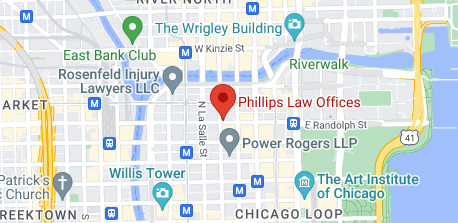Class action lawsuits are complex legal suits that proceed differently from regular court cases. They involve multiple plaintiffs with the same or almost similar injuries sustained due to common defendants. Grouped into classes, these plaintiffs join in a single lawsuit based on their injuries. The court treats the class as a single plaintiff, and the final decision applies to all class members. Initially, an attorney might not know about the status of the class action lawsuit. The attorney may file a putative class action in such cases.
People sometimes incur losses due to discriminatory acts, unethical business practices, unfair prices, defective products, dangerous drugs, or securities fraud. You could file a punitive class action lawsuit against the responsible party if you suffered damages. Discuss your case with our personal injury lawyer Chicago specializing in class action lawsuits to decide the best course. The attorney will help determine whether or not a class action lawsuit is appropriate for you.
Knowing about putative class action
Punitive means alleged, presumed, or supposed in law. You can initiate a class action lawsuit in federal and state courts by filing a proposed or “putative” class action. One or more named plaintiffs can file a putative class action on behalf of potential groups of people who claim to have experienced the same harm. They seek compensation for psychological trauma and economic damages suffered because of the defendant’s negligence. By bringing this class action, you can receive reimbursement for your losses without paying expensive legal fees. Since the cost of litigation is less and benefits are more, it encourages other defendants to participate in restitution.
Before filing a class action lawsuit, an attorney may not know about all the plaintiffs or potential plaintiffs. For instance, a person (plaintiff) suffered injuries due to a defective product sold in the market. Many other people who bought that derivative could have suffered almost the same injuries but did not file a lawsuit. Most likely, the attorney goes for a putative class action in such cases. The first plaintiff will ask to represent the interests of all plaintiffs, both known and unknown at the time of filing the lawsuit. However, it is not a class action until the court certifies the suit. Another option is to see if there is a pending class action lawsuit in which you can participate.
Process after filing a putative class action
If you believe you have a potential class action, the first step is to hire a competent personal injury lawyer. Your attorney will guide you through the entire legal process, from filing a lawsuit to obtaining compensation. After filing the initial putative class action complaint in court, the plaintiffs and defendants will proceed to the discovery phase of litigation. During discovery, the plaintiffs and defendants will ask questions, share documents, exchange information, attend depositions, and consult with experts. The goal of discovery is to find and verify the facts and supporting evidence for a fair settlement. This phase enables the attorneys to gather sufficient data to confirm the class of plaintiffs and justify the certification of the class action lawsuit.
Transitioning from putative to certified class actions
A putative class action is a lawsuit filed by one or more named plaintiffs on behalf of multiple people sharing a similar claim. Lawsuits are not class actions until the court certifies them. In other words, putative class action denotes a case in which the court has not yet approved a class of plaintiffs. It turns into a class action if the judge certifies the class.
A plaintiff or defendant could ask the court to certify the class and convert the case into a class action. This appeal generally happens when they believe they have sufficient justification for transforming the putative suit into a legitimate class action lawsuit. The judge will decide whether or not to certify a class action based on the following factors:
- The existence of certain and numerous plaintiffs forming a class.
- Injuries sustained are similar among class members
- The underlying facts of the case are the same.
- Claims of the class representatives and class members do not significantly differ.
- Class representatives are capable of representing the interests of other potential plaintiffs.
- Defendants can compensate the potential plaintiffs if proven liable.
If the class representatives establish all these factors, the judge will certify their case as a class action lawsuit. It will reduce waste, save time, and prevent work from being done twice. Hence, there is a compelling reason for the suit to be a class action.
Processing of class action after certification
The attorney will notify all potential class members when the case legally becomes a class action. They may send a legal notice via mail, TV, radio, or the internet. Individuals have the right to opt out and bring a separate lawsuit if they don’t want to participate in the class action. However, those who do not leave are class members and bound to the settlement made in the class action.
Class action litigation can take years to resolve because it involves intricate legal and factual issues. Ultimately, parties may either resolve out of court or have a trial in court with a judge rendering the verdict. They may engage in alternative dispute resolution at any time, whether before or after certification. If they reach a decision, the court must approve the agreement to guarantee that the class’s interests are fairly adjudicated. The court will view the class as a single plaintiff, and the decision in the case will be binding on all class members.
Different kinds of Putative class action lawsuits
In a class action lawsuit, a group of people files a lawsuit against a single defendant. Typically, one or more “lead plaintiffs” represent all class participants. The process is worthwhile in injury cases where multiple people suffer similar injuries due to the defendant’s actions. It also benefits the court system because it relieves courts of the burden of hearing hundreds or thousands of small claims cases. Over the years, many types of class action lawsuits have come to notice. Some were against government entities, while many suits alleged false advertising by businesses and selling defective products. Listed below are some prominent class actions filed through a group of people who suffered similarly.
Anti-trust lawsuits
This type of class-action lawsuit alleges defendants for resorting to business practices that violated antitrust laws. For example, a company pursued price fixing or signed an agreement to eliminate competition. Eventually, individuals can file a suit for claims of overpricing a product or service by fraudulent means.
Product liability
People can file a class section on the grounds of product liability. It includes conditions involving defective product design, faulty spare parts, or missing warning labels. Since the defendant caused a breach of warranty, it harmed many product users.
Banking fraud
Many bank clients may initiate a class action due to fraudulent behavior in the facility. For instance, they suffered because of interest overcharging, poor trust management, or leaking of customer information by the bank.
Employment
Employment laws are prevalent for regulating better working conditions. It has provisions for overtime, discrimination, retirement, trade unions, minimum wage payout, and perks. The victim may file a class action lawsuit if an employer violates one or more of these employment laws against its employees.
Consumer safety
Federal and state consumer protection laws cover telemarketing, communication service fees, bills, credit reports, debt collection, and other aspects. Even when the defendant violates one of these laws, it evokes a Putative class action lawsuit. It is because many class members share similar situations.
Environment
Environmental law aims to prevent the degradation of natural resources. Oil spills, littering, using illegal pesticides, improper waste disposal, and burning garbage are health hazards. If plaintiffs sustained injuries due to non-compliance with environmental law, they could seek class action lawsuits.
Pharmaceutical personal injury
Healthcare professionals use various medical devices to treat specific illnesses or disorders. Many patients rely on the safe usage of these apparatuses for their well-being. However, if the medical devices or over-the-counter drugs are defective, they could cause severe injuries or even death.
Hiring the best Putative Class Action lawyers
Class actions are ideal when the damages claimed by each plaintiff, or the number of people claiming injuries, is too low to warrant filing individual lawsuits. These plaintiffs can hire a lawyer in a group and pursue compensation for their injuries because of their collective financial resources. Class members may be entitled to a share of the damages compensated by the defendant, depending on the type of lawsuit filed and the number of defendants represented. The amount you receive if you win a punitive class action lawsuit may be small because it frequently involves numerous defendants.
Finding a qualified Putative class action lawyer is essential to initiate a particular case. Even if you have heard about a class action in which you believe you can join, you should contact an attorney. Our attorney at Phillips Law Offices can guide you through the best course of action. We have extensive experience defending people in class action lawsuits across the nation. Contact our Mass Torts lawyer and schedule a case evaluation without worrying about upfront costs. We work on a contingency basis, implying that fees get adjusted to the awarded damages.
Also Read:







